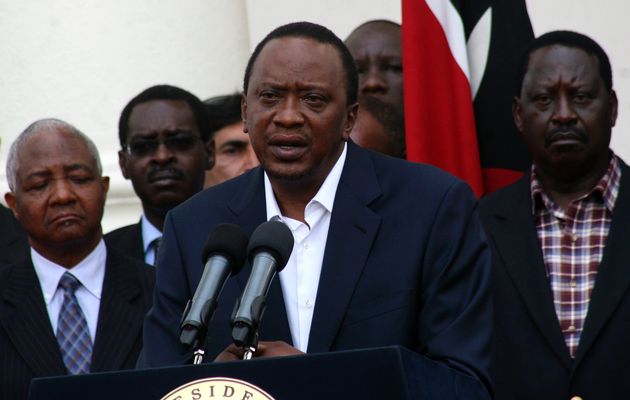Is the Nigerian fuel crisis over? That’s a question being asked from Abuja to Pretoria, and the answers proposed are, frankly, contradictory. An agricultural development in Mozambique may threaten the livelihoods of 100,000 farmers. And Kenya’s police force suffers losses against Al-Shebab militants.
The Nigerian fuel crisis is making headlines as far away as South Africa.
According to the top story in this morning’s Johannesburg-based financial paper, BusinessDay, the crisis has grounded aircraft, shut banks and threatens businesses, as fuel retailers halt distribution over a pay dispute with the government.
Nigeria depends on fuel imports to meet more than 70 per cent of its domestic needs and pays importers to guarantee cheaper local prices. The oil companies allege they’re still owed the naira equivalent of one billion euros in outstanding payments by the outgoing government of President Goodluck Jonathan.Guaranty Trust Bank, Nigeria’s biggest lender, closed its offices yesterday afternoon because of the shortages, while Arik Air, the country’s biggest carrier, has cut two-thirds of its 120 daily flights. International airlines are reported to be diverting flights away from Lagos and Abuja becasue of refuelling problems.
President-elect Muhammadu Buhari will take over from Jonathan on Friday.
In Nigeria itself Punch reports that the strike which provoked the fuel shortages is now over.
Loading of petroleum products commenced at fuel depots in Lagos on Monday afternoon, although Nigerians are still counting the cost of the crippling energy crisis, says Punch.
The paper quotes industry sources as saying it could take until Friday to get the situation back to normal, since many fuel depots are low on stock.
The front page of The Guardian is much less optimistic.
The Guardian reports that the Nigeria Labour Congress (NLC) says it may ask workers to stay at home in protest as the fuel crisis continues.
The Deputy President of the NLC, Issa Aremu, yesterday complained that petrol was costing as much as six times the official price. He dimissed claims and counter-claims by Finance Minister Ngozi Okonjo-Iweala and marketers over billions of naira in subsidy payments, saying all state actors were indifferent. Aremu said Nigeria is the only country on earth which unacceptably and criminally denies its citizens access to basic sources of energy.
The Guardian also points out that the present combined output of petroleum products from the four Nigerian refineries continues to fall short of total national demand.
The Guardian‘s editorial, headlined “A nation’s embarrassment,” says yesterday’s announcement of an agreement between the government and other stakeholders to end the fuel crisis came too late and after too much agony.
With persistent scarcity of petroleum products now a measure of the shortage of good governance in Nigeria, the editorial continues, neither the government nor the other stakeholders, especially petroleum products’ marketeers, should underestimate the embarrassment and pain they are causing.
The Guardian says “Nigerians are suffering from the deleterious impact of a byzantine subsidy scheme that has been nurtured over the years by the government and petroleum marketers to enrich a few.”
The incoming president has promised a permanent solution to the problem.
Mozambique is considering a plan to lease 240,000 hectares of farmland to investors to grow crops for export, threatening to displace more than 100,000 local residents, activists claim, citing a leaked document. This story appears in BusinessDay.
The Lurio River Valley Development Project in Mozambique’s north-east aims to produce cotton, corn, sugar, ethanol and livestock, according to the advocacy group Academic Action for the Development of Rural Communities.
An estimated 500,000 people will be affected by the plan, with 100,000 forced from their homes, according to a leaked presentation to would-be investors and satellite images.
In Kenya both The Standard and The Daily Nation report that an unknown number of police officers are feared dead after Al-Shebab militants ambushed their vehicles in Yumbis, Garissa County.The leaked plan is the latest in a series of major foreign-based agricultural projects proposed in Mozambique and other African countries that supporters say will bring jobs and boost land productivity but critics fear will displace local people and rob small-scale farmers of their livelihoods.
Unconfirmed reports indicate that at least 20 police officers were killed in the attack.
Three officers who escaped the Monday night attack said several police vehicles were burnt by the fighters.
The police officers were in a convoy of four vehicles heading to Yumbis hours after their colleagues were injured in another attack on Monday afternoon.
In the Monday afternoon attack, three police officers were injured after their vehicle ran over a landmine.


